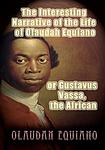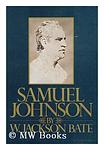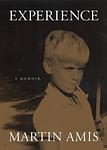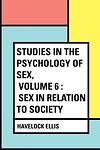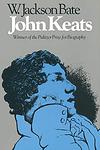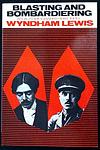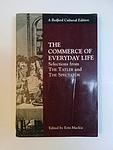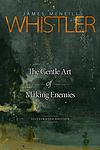The Greatest "Nonfiction, London" Books of All Time
Click to learn how this list is calculated.
This list represents a comprehensive and trusted collection of the greatest books. Developed through a specialized algorithm, it brings together 300 'best of' book lists to form a definitive guide to the world's most acclaimed books. For those interested in how these books are chosen, additional details can be found on the rankings page.
Genres
The "London" category of books encompasses stories that are set in the city of London, England. These books may explore the history, culture, and people of the city, or they may use London as a backdrop for fictional tales of love, mystery, and adventure. From classic literature to contemporary fiction, the "London" category offers a diverse range of books that capture the essence of this iconic city.
Countries
Date Range
Reading Statistics
Click the button below to see how many of these books you've read!
Download
If you're interested in downloading this list as a CSV file for use in a spreadsheet application, you can easily do so by clicking the button below. Please note that to ensure a manageable file size and faster download, the CSV will include details for only the first 500 books.
Download-
1. The Life of Samuel Johnson by James Boswell
"The Life of Samuel Johnson" is a comprehensive biography that chronicles the life of one of the most prominent English literary figures of the 18th century. The book provides an in-depth account of Samuel Johnson's life, his literary works, and his significant contribution to English literature. It also offers a detailed portrait of his personality, his relationships, his struggles with depression and illness, and his views on a variety of subjects. The book is as much a biography of Johnson as it is a portrayal of 18th-century England.
-
2. A Vindication of the Rights of Woman by Mary Wollstonecraft
This influential work from the late 18th century argues passionately for the education and societal recognition of women. The author asserts that women are not naturally inferior to men, but appear to be only because they lack education. She suggests that both men and women should be treated as rational beings and imagines a social order founded on reason. The book is considered one of the earliest works of feminist philosophy.
-
3. On Liberty by John Stuart Mill
This influential philosophical work explores the concept of personal freedom and societal limits, arguing that individuals should have the right to act as they want, provided they do not harm others. The book elaborates on the nature and limits of the power that can be legitimately exercised by society over the individual, and champions individuality and nonconformity. It also discusses freedom of speech, asserting that all opinions should be openly expressed to prevent any single viewpoint from becoming dogma.
-
4. Down and Out in Paris and London by George Orwell
This book is a semi-autobiographical work that explores the harsh realities of poverty in two of Europe's most renowned cities. The protagonist, a struggling writer, first experiences the squalor, hardship, and vagabond lifestyle of Paris, where he works menial jobs and often goes hungry. The narrative then shifts to London, where the protagonist lives as a tramp, navigating the oppressive rules of homeless shelters and the stigma of poverty. The book is a deeply empathetic and insightful exploration of the often invisible world of the impoverished.
-
5. Selected Essays of T. S. Eliot by T. S. Eliot
This book is a collection of critical and reflective essays by a renowned poet and literary critic. The author explores a variety of topics including literature, culture, society, and religion. The essays offer an insightful and thought-provoking commentary on the works of other writers, as well as the author's own views on literary theory and criticism. The collection serves as an important resource for understanding the author's intellectual development and his influence on 20th century literature and criticism.
-
6. The Interesting Narrative of the Life of Olaudah Equiano by Olaudah Equiano
This autobiographical book tells the story of an African man who was kidnapped from his homeland as a child and sold into slavery. The narrative follows his life as he is transported across the Atlantic, sold to various masters, and eventually purchases his own freedom. The book provides a detailed account of the horrors of the Middle Passage and the inhumane conditions of slavery, while also serving as a powerful testament to the human spirit's ability to overcome adversity.
-
7. The Diary of Samuel Pepys by Samuel Pepys
"The Diary of Samuel Pepys" is a detailed personal account written by a 17th-century English naval administrator and Member of Parliament. The diary offers an intimate look at life in London during a time of great historical significance, including the Great Fire of London, the Great Plague of London, and the Second Dutch War. Pepys' entries provide keen observations on politics, social customs, and personal relationships, making it an invaluable primary source for understanding the period.
-
8. Samuel Johnson by Walter Jackson Bate
This biography provides an in-depth look into the life of Samuel Johnson, an 18th-century English writer who contributed greatly to English literature as a poet, essayist, moralist, literary critic, biographer, and lexicographer. The book explores Johnson's struggles with depression, fear of death, and various physical ailments, as well as his intellectual prowess and his impact on literature. It also delves into his relationships with other notable figures of his time, offering a comprehensive portrait of a complex and influential man.
-
9. A Dictionary of the English Language by Samuel Johnson
This comprehensive work is an extensive dictionary of the English language, providing detailed definitions, etymology, and usage examples for a wide range of words. It was one of the earliest dictionaries to approach language in this systematic and scholarly way, and it played a significant role in standardizing English spelling and usage. This dictionary is not only a linguistic resource but also a reflection of 18th century intellectual life, as it includes numerous quotations from notable authors and thinkers of the time.
-
10. Alan Turing by Andrew Hodges
This biography provides a comprehensive look at the life and work of a pioneering computer scientist and mathematician who played a crucial role in breaking the Enigma code during World War II. It delves into his groundbreaking contributions to the development of computer science, his tragic prosecution for homosexuality, and his enduring legacy in the field of artificial intelligence and computing. The book not only celebrates his scientific achievements but also examines the social context of his time, shedding light on the challenges he faced and the impact of his work on future generations.
-
11. Experience by Martin Amis
"Experience" is a memoir which delves into the author's life, exploring his relationships with his family, friends, and his own self. The narrative is a candid reflection on his father's influence, his friendships with other writers, his marriages, and his children. The author also discusses his experiences with fame, age, and loss, providing an intimate look into his personal and professional journey. The memoir is a blend of the author's unique humor, sharp observations, and poignant moments, offering a compelling and deeply personal narrative.
-
12. The Last Lion by William Manchester
"The Last Lion" is a comprehensive biography of Winston Churchill, providing an in-depth look at his life, from his birth in 1874 to his death in 1965. The book covers Churchill's early years, his military service, his time as a journalist, and his political career, including his role as British Prime Minister during World War II. It also delves into his personal life, relationships, and struggles with depression. The book presents a nuanced portrayal of Churchill, highlighting his strengths, flaws, victories, and defeats.
-
13. Areopagitica by John Milton
"Areopagitica" is a powerful 17th-century polemic against censorship and a passionate defense of the freedom of speech and expression. The author argues against the Licensing Order of 1643, which allowed the British government to censor literature and other forms of expression. He asserts that censorship is a form of tyranny and that in a true republic, freedom of thought and discussion should be promoted, not suppressed. The author also contends that exposure to a wide range of viewpoints, including those that may be false or harmful, is necessary for intellectual and moral growth.
-
14. Studies in the Psychology of Sex by Havelock Ellis
This book explores the psychology of sex, delving into a wide range of subjects including sexual inversion, erotic symbolism, sexual impulse in women, and the sexual impulse in men. It also covers the analysis of the sexual instinct, its development in childhood and adolescence, and its manifestations in adulthood. The author uses a scientific approach, drawing on extensive research and case studies to provide a comprehensive understanding of the topic. It's considered a pioneering work in the field of sexology.
-
15. Confessions of an English Opium-Eater by Thomas de Quincey
This book is a memoir that delves into the author's experiences with opium addiction. It offers a detailed account of his life before and after becoming an addict, providing a vivid picture of the physical, psychological, and emotional effects of opium usage. The author's exploration of the dreamlike states induced by the drug, combined with his philosophical reflections on pain, pleasure, and consciousness, make this work a unique blend of autobiography and psychological exploration.
-
16. The World Of Yesterday by Stefan Zweig
The book is a poignant memoir reflecting on the transformative events and cultural atmosphere of Europe before World War I, through the interwar years and into the rise of the Nazis. It captures the author's experiences of growing up in a vibrant pre-war Vienna, the intellectual richness and artistic achievements of the time, as well as the profound sense of loss as the world he knew disintegrated into chaos and totalitarianism. With a mix of nostalgia and despair, the narrative serves as a lament for the lost world of European culture and as a warning about the fragility of peace and the human cost of war.
-
17. The Quest For Corvo by A. J. A. Symons
The book is a genre-blending biography that follows the author's obsessive search to uncover the life of an enigmatic and relatively obscure writer. Through a series of interviews, letters, and pieced-together anecdotes, the biographer delves into the complex character of his subject, a man of great talent and creativity who nonetheless struggled with personal demons and societal rejection. The narrative is as much about the biographer's journey and the process of biographical discovery as it is about the eccentric and troubled life of the writer himself, presenting a unique and engaging exploration of identity, legacy, and the nature of biographical pursuit.
-
18. Coleridge: Early Visions by Richard Holmes
"Coleridge: Early Visions" is a comprehensive biography that offers an in-depth look into the life of one of the most influential English Romantic poets. The book chronicles the poet's early life, his education, his relationships and his struggles with opium addiction. It also delves into his philosophical ideas, his collaborations with other notable figures of his time, and his literary contributions, particularly his poetry and critical essays. The biography provides a detailed and nuanced portrayal of the poet's complex personality, his creative process, and the social and cultural context in which he lived and worked.
-
19. John Keats by Walter Jackson Bate
This book is a comprehensive biography of the English Romantic poet, John Keats. It delves into Keats's life, his relationships, his struggles with illness, and his development as a poet. The author provides a detailed analysis of Keats's poetry and letters, revealing the depth of his passion, his intellectual curiosity, and his commitment to creating poetry that was 'a living thing'. The book also explores the social, political, and cultural context of Keats's life, providing a rich understanding of the man and his work.
-
20. The Naked Civil Servant by Quentin Crisp
The book is a groundbreaking autobiography that chronicles the life of an openly gay man in the conservative British society of the early 20th century. It details the author's struggles with societal norms, his flamboyant persona, and his refusal to hide his sexuality, despite facing constant ridicule and violence. Through wit and resilience, the author becomes a celebrated eccentric and a gay icon, providing an unapologetic and humorous insight into the life of an individual determined to live authentically in the face of pervasive prejudice.
-
21. My Father And Myself by J. R. Ackerley
The book is a posthumously published memoir that explores the complex relationship between the author and his father. The narrative delves into the author's journey of self-discovery, particularly regarding his own sexuality, against the backdrop of his father's secretive life. It reveals the author's quest to understand his father after his death, unearthing surprising truths and a parallel hidden life of homosexual liaisons, which mirrors the author's own experiences. The memoir is a poignant reflection on identity, family secrets, and the search for honesty and connection.
-
22. Blasting And Bombardiering by Wyndham Lewis
This book is an autobiographical account that blends sardonic wit with vivid descriptions of the author's experiences during the first half of the 20th century, particularly focusing on his time serving as an artillery officer during World War I. It offers a trenchant critique of modern warfare and the cultural shifts of the era, as well as an inside look at the author's involvement with the avant-garde art and literary movements of the time. The narrative is characterized by its acerbic humor, intellectual rigor, and the author's distinctive perspective on the chaos and transformation that defined the early decades of the twentieth century.
-
23. Selections From The Tatler And The Spectator by Joseph Addison, Richard Steele
This collection brings together a curated selection of essays from two pioneering eighteenth-century periodicals, "The Tatler" and "The Spectator." Conceived and written by Joseph Addison and Richard Steele, these essays offer insightful, witty, and often moralistic observations on society, manners, and literature of their time. Through a blend of satire, criticism, and instruction, the authors aimed to both entertain and edify their readers, promoting virtues such as charity, friendship, and honesty. Their work not only reflects the intellectual and cultural milieu of early 1700s England but also significantly contributed to the development of English prose and the periodical essay as a literary form.
-
24. The Gentle Art Of Making Enemies by James McNeill Whistler
This book is a witty and often sarcastic response to critics and the controversies surrounding the author's work and public persona. It compiles the author's articles, letters, and pamphlets that were part of his public disputes, particularly focusing on his famous libel suit against critic John Ruskin. Through this collection, the author defends his artistic principles and critiques the Victorian art establishment, advocating for the value of art for art's sake. The work is not only a defense of the author's own artistic vision but also a critique of the lack of understanding and appreciation of modern art by both critics and the public during his time.
-
25. The Concept Of Mind by Gilbert Ryle
This philosophical work challenges the Cartesian dualism of mind and body, proposing instead that the mind is not a separate entity but a way of acting. The author introduces the notion of "the ghost in the machine" to critique the traditional understanding of the mental as distinct from the physical. Through a detailed analysis, the text argues that mental vocabulary should be understood in terms of dispositions to behave in certain ways, rather than referring to an inner, private realm. This influential book reshapes the way we think about the mind, emphasizing that mental processes are not located in an inner space but are observable in the patterns of behavior and the competencies individuals exhibit.
Reading Statistics
Click the button below to see how many of these books you've read!
Download
If you're interested in downloading this list as a CSV file for use in a spreadsheet application, you can easily do so by clicking the button below. Please note that to ensure a manageable file size and faster download, the CSV will include details for only the first 500 books.
Download




